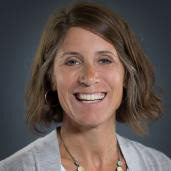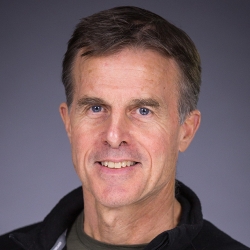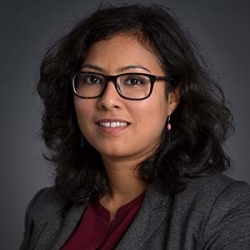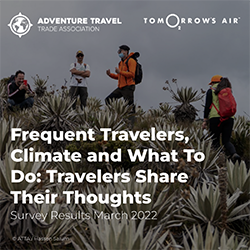Winners of the 2024 CHSS Faculty Excellence Awards
SF State’s College of Health & Social Sciences announces the 2024 recipients of the CHSS Faculty Excellence Awards, established to underscore the College’s deep commitment to excellence in teaching, scholarship and service.
Read about this year’s awardees below.
Excellence in Teaching (Tenure-Track)
Dr. Alexis Martinez
Associate Professor in the Department of Sociology & Sexuality Studies
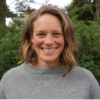
Dr. Alexis Martinez has been awarded with the CHSS Excellence in Teaching Award for tenured faculty for the exemplary quality and impact of her achievements in pedagogy.
She is a medical sociologist with a background in community-based research with marginalized populations and is also the Vice Chair and Graduate Studies Coordinator for the Department of Sociology & Sexuality Studies. Her work focuses on the criminalization of drug use in the United States as a structural factor that shapes the HIV risk environment of injection drug users (IDUs). Previously, Dr. Martinez worked with the Urban Health Study at UCSF to understand the relationship between arrests, incarceration, and HIV risk among street based IDUs in San Francisco.
Excellence in Teaching (Lecturer)
Professor Benjamin Kumli
Lecturer in the Department of Recreation, Parks, Tourism & Holistic Health
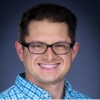
Professor Benjamin Kumli has been awarded with the CHSS Excellence in Teaching Award for lecturer faculty for the exemplary quality and impact of his achievements in pedagogy.
Benjamin Kumli has over 25 years of experience working in experiential education. Professor Kumli has managed adaptive ski and rafting programs and is an experienced trip leader in a wide variety of outdoor adventure pursuits. In addition to his teaching at SF State, he currently serves as the California Faculty Association (CFA) representative for the Department of Recreation, Parks, Tourism & Holistic Health. Professor Kumli is an alum in addition to being a faculty member, as he earned both his B.A. ('07) and M.S. ('11) degrees from SF State.
Excellence in Service
Dr. Albert Lobo de la Tierra
Assistant Professor in the Department of Criminal Justice Studies
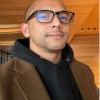
Dr. Albert Lobo de la Tierra has been awarded the CHSS Excellence in Service Award for his dedication to service activities that impact student success and enhance the SF State Community.
Dr. Albert de la Tierra (also known as Professor Lobo) is a critical sociologist, writer, and educator. As a researcher, he is committed to illuminating the connections between lived experiences and structures of power. His current work explores men's mental health at the intersections of race, masculinity, and carceral governance.
As an Assistant Professor in the Department of Criminal Justice Studies, he embodies the principles of servant leadership. He builds programing, works collaboratively, and launches initiatives to enable others to perform at their best and feel nourished by their involvement in his projects. He designed The Annual Review of Criminal Justice Studies, an undergraduate journal, to function as something akin to an honors program for students from historically excluded populations. Through seminar style meetings, webinars with invited speakers, and a research symposium, participants are shepherded through the process of producing rigorous critical scholarship. (He is currently accepting nominations for the 2024-2025 cohort.) Additionally, as the lead organizer for The Crime & Justice Film Series, he contributes to the intellectual vibrancy of our university by partnering with colleagues to create events that bring diverse stakeholders to campus for important discussions about the criminal justice system.
Through this work, Dr. de la Tierra has brought former wardens of California State Prisons, directors of research and policy organizations, social workers, mitigation specialists, attorneys, formerly incarcerated and system impacted individuals, lawmakers, activists, and a range of community members to campus to speak with our students and faculty. These and other service contributions make Dr. de la Tierra proud to be a member of the College of Health and Social Sciences as they've afforded him the opportunity to build community with many of his inspiring departmental colleagues. Looking ahead, he is excited to meet and partner with faculty across the College and campus as he aims to build interdisciplinary collaborations that further elevate our university's reputation as a leader in social justice research and education.
Excellence in Scholarship
Dr. Zubaida Qamar
Associate Professor of Nutrition and Dietetics in the Department of Family, Interiors, Nutrition, and Apparel

Dr. Zubaida Qamar has been awarded with the CHSS Excellence in Scholarship award for her support of student-initiated research that evolves beyond the requirements for a degree.
Dr. Zubaida Qamar is an Associate Professor of Nutrition and Dietetics in FINA (Family, Interiors, Nutrition, and Apparel) department and specializes in investigating food security within higher education. As the SFSU Campus Farm Lead and Co-Lead of the Food Security in Higher Education sub-committee for the Society of Nutrition Education and Behavior, she pioneers initiatives bridging academia and sustainable, food-secure systems. She has several years of experience investigating food insecurity among college students and informing evidence-based, nutrition interventions for equitable food access in diverse communities. Dr. Qamar is a strong advocate of incorporating multidisciplinary approaches in her teaching, student mentorship, and research collaborations to enhance food sovereignty.

